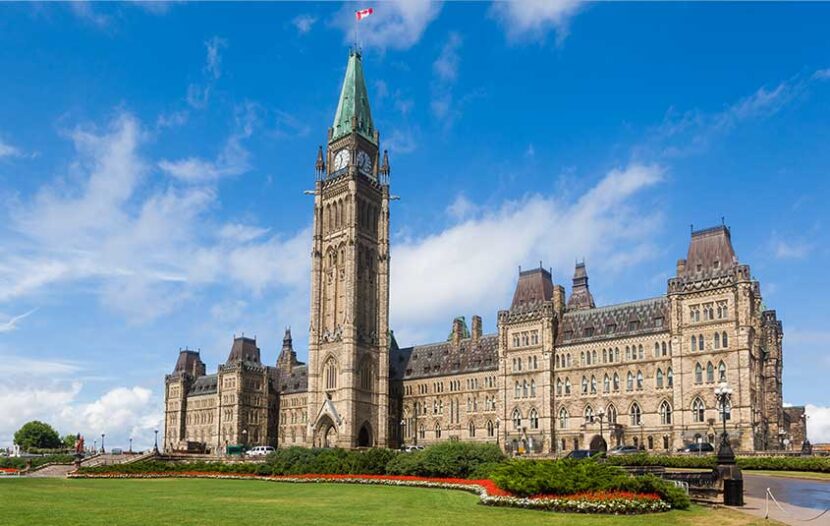TORONTO — There’s no all-encompassing travel ban or blanket travel advisory but the travel industry is bracing for upheaval with the omicron variant and new testing requirements.
And as is often the case, there are more questions than answers at this point.
As announced yesterday by the federal government, all air arrivals to Canada, except from the U.S., will be tested on arrival at the airport and must isolate until the results are known.
Details were few, and the news came on the same day that more than half a dozen airports across Canada finally reopened to international travel. In early 2021 all but four of Canada’s airports closed to international travel, in part to streamline testing procedures.
The new testing rules apply even to fully vaccinated travellers. During the same briefing another three countries – Egypt, Malawi and Nigeria – were added to Canada’s omicron watch list, bringing the total to 10.
Transport Minister Omar Alghabra was interviewed this morning on Breakfast Television, and he was asked about the possibility of Canada returning to an all-out travel ban.
Canada’s advisory against all non-essential travel, in place for more than 19 months, lifted just weeks ago on Oct. 21.
In his response on BT, Minister Alghabra gave no indication that Canada would return to an all-out travel ban. However, he said, “we’ve learned that limiting volume of travel reduces the chances of infection. And we learned that testing gives us great tool of surveillance so we can keep an eye on trends and patterns and types of infections that could be imported. So what we’ve done yesterday, we’ve announced additional layers of protection … and some of them include restricting travel to individuals who have been to certain countries over the last 14 days. Others include testing. So we feel really confident that these layers of protections are going to help reduce the risk of importing the virus.”
Canada’s advice for travellers has been updated in the wake of the discovery of the omicron variant, and urges caution.
There’s also potential confusion about requirements for self-isolation (for all air arrivals except from the U.S.) and quarantine (for arrivals via the 10 countries). For the 10 countries on the omicron watch list, arrivals have been asked to quarantine until they get their test results. On BT Minister Alghabra was asked about the government’s use of the word ‘facilities’ for those under quarantine, and whether that meant a return to quarantine requirements in airport hotels. “Yes, we are mostly talking about hotels,” he said.
There’s also uncertainty about how Canada’s airports will handle testing for every air arrival except those from the U.S. This morning Minister Alghabra noted that the number of air arrivals tested is currently at about 20,000, and now needs to ramp up to 32,000. “So it’s a significant increase. We expect that as of today we’re going to start to start ramping up … but I think it will take a few days for us to reach the maximum.”
Both the Canadian Airports Council (CAC) and the National Airlines Council of Canada (NACC) released statements in the wake of yesterday’s announcement.
CAC President Daniel-Robert Gooch said that while Canada’s airports appreciate the government of Canada’s swift move to implement new measures to guard against further spread of the omicron variant in Canada, “we urge the government of Canada to work with Canada’s airports and air carriers in the coming hours to ensure these measures, which haven’t been seen in detail, are operationally feasible at Canada’s international airports.”
As Gooch points out, “the only operationally-feasible way to test 100% of international arriving travellers – from all countries except the U.S. – is to provide off-site tests, such as those that travellers can take at their home or other point of self-isolation.”
He added: “We also must ensure there is sufficient testing capacity to implement this across all of the traveller groups that now will be required.”
And Mike McNaney, President and CEO of the NACC, said that while the aviation sector will move rapidly to implement the temporary measures announced today by the federal government, “the economic uncertainty facing aviation cannot be overstated. As the variant is reviewed by public health authorities, we expect the government will move forward through science and data based decision making, tied to clear metrics.”
At yesterday’s briefing Marco Mendicino, Minister of Public Safety and Emergency Preparedness, said that in the face of omicron and potentially other variants, the federal government is “working quickly with the provinces and territories to determine how we could expand testing capacity to include all travellers, from all countries, including the U.S., from both land and air, if needed in the future.”

